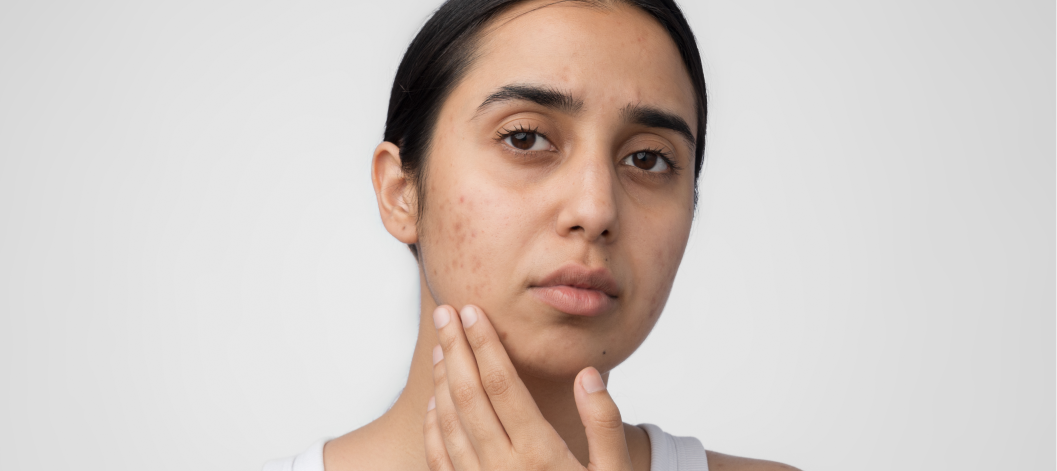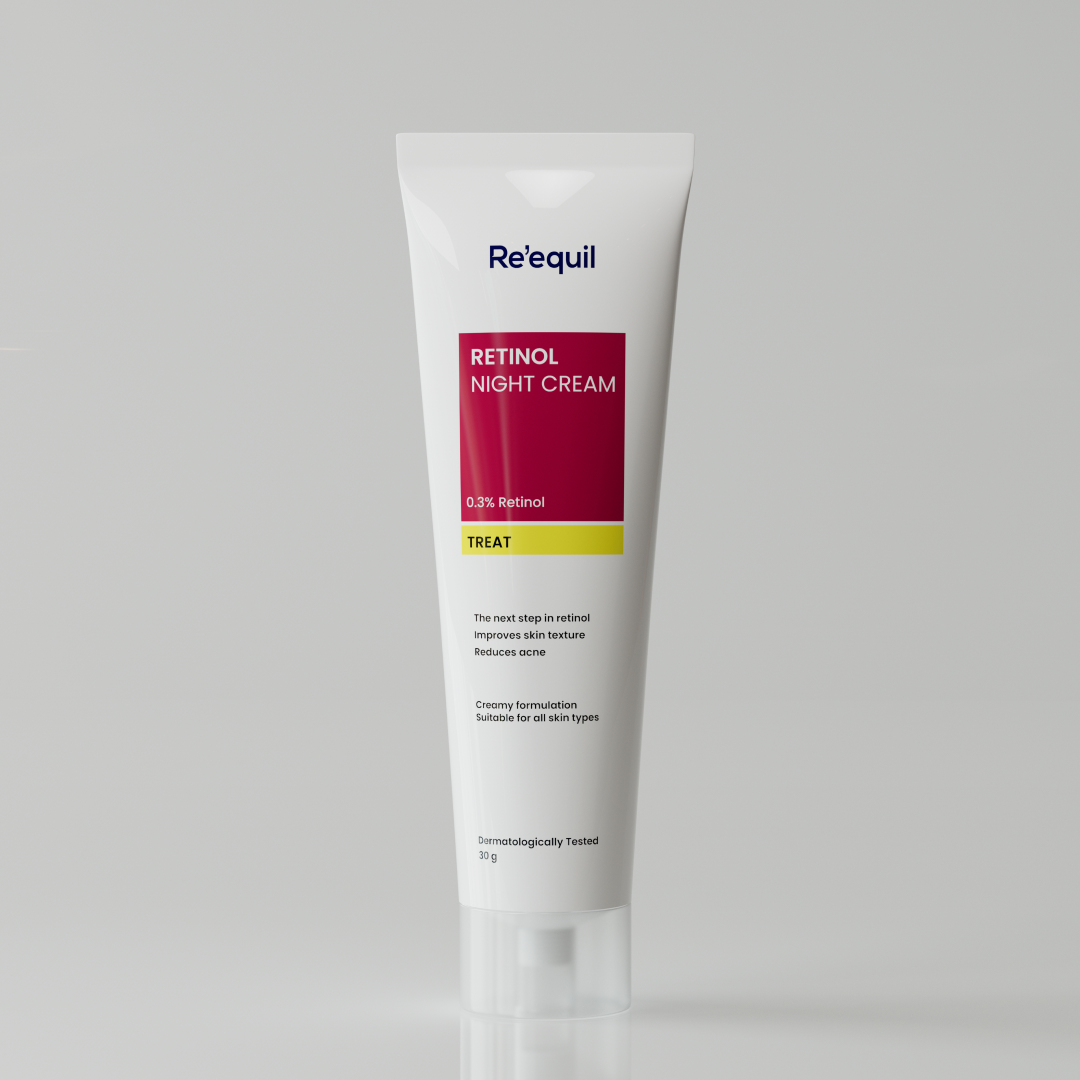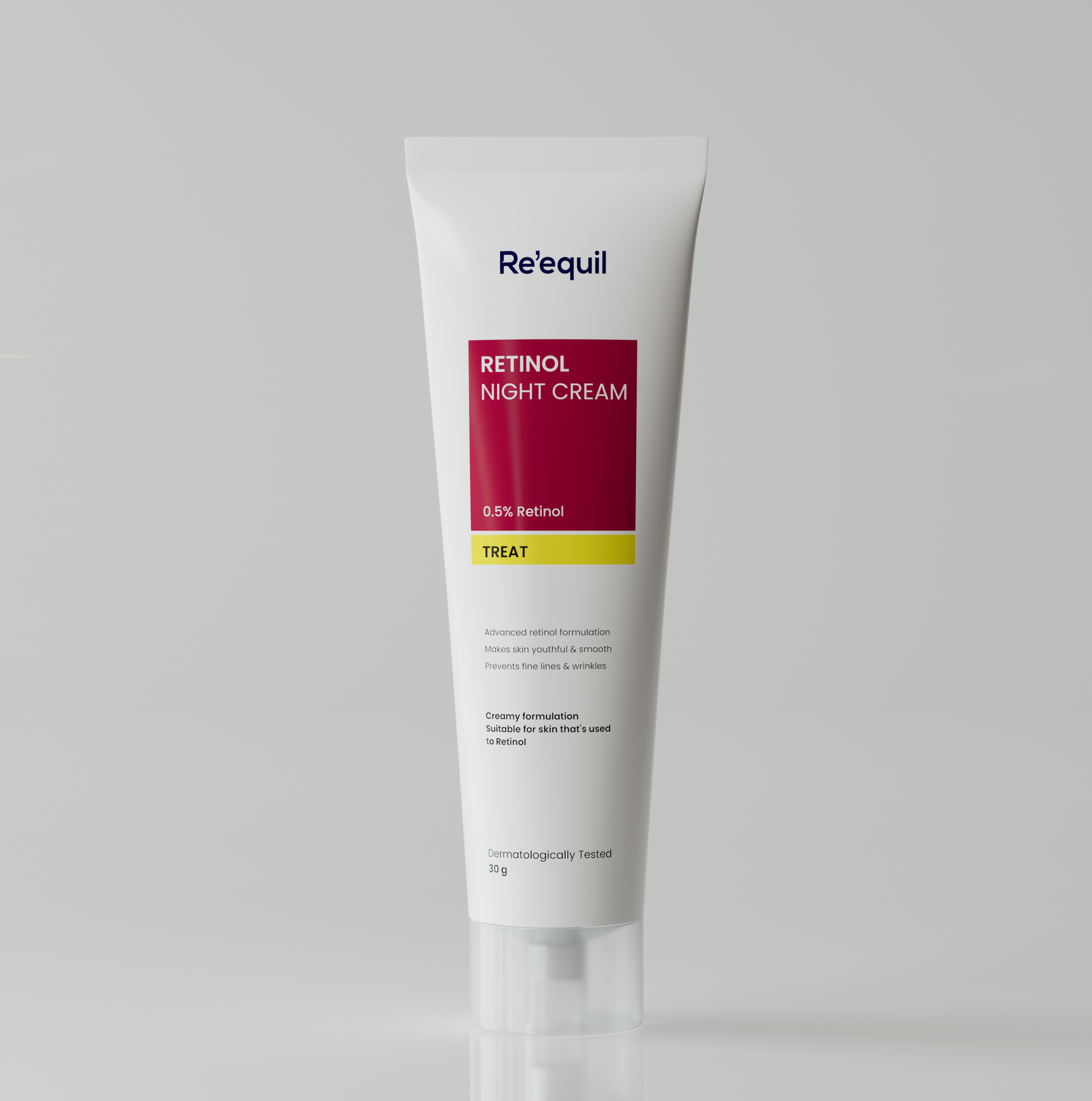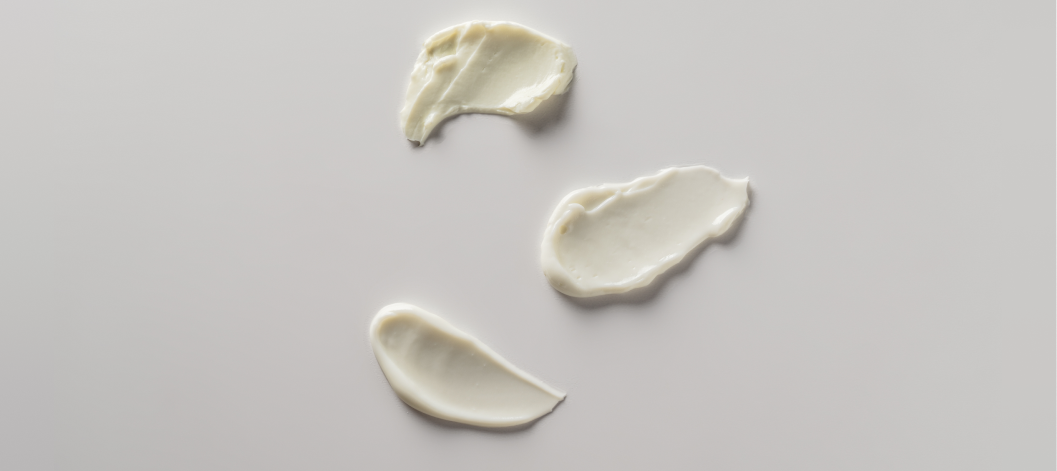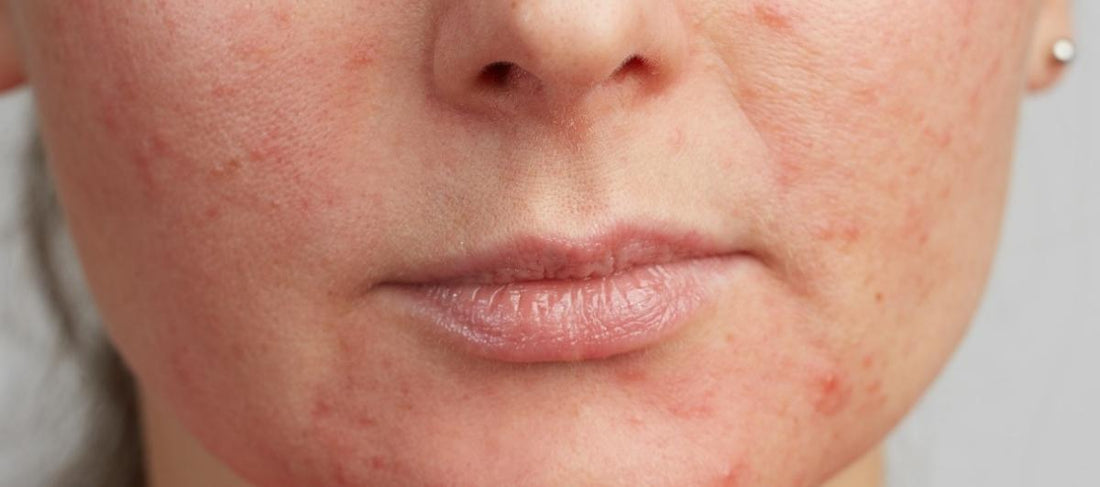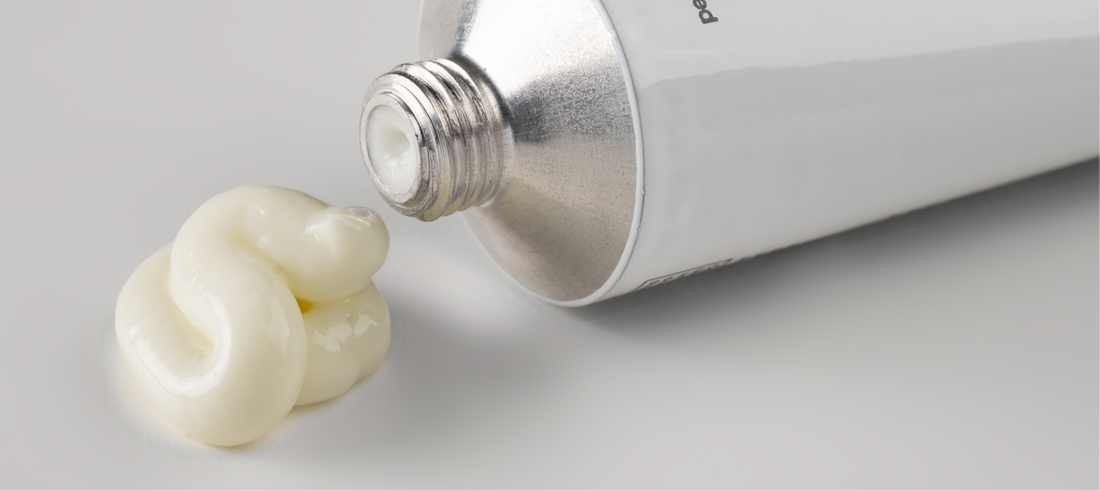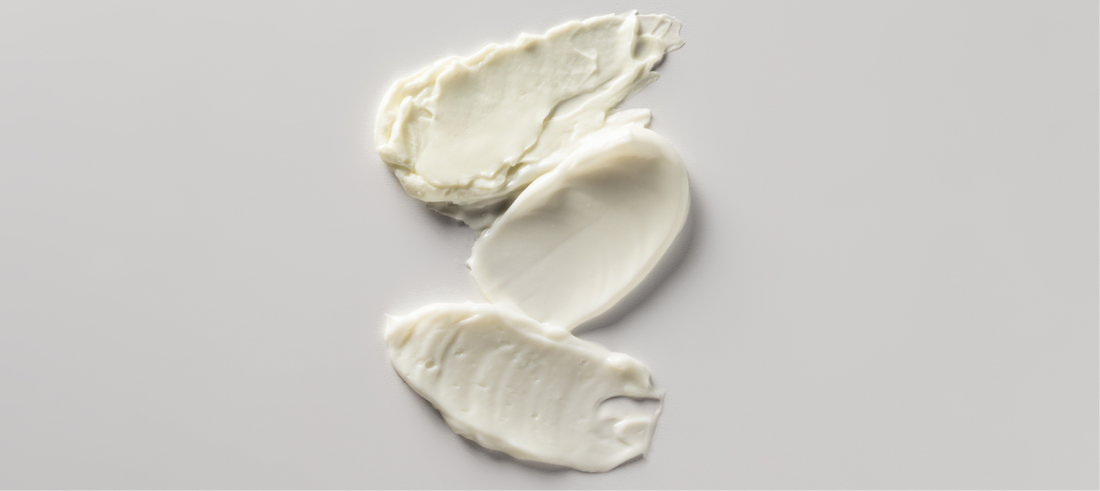When it comes to anti-ageing treatments—it's difficult for most people to think beyond retinol.
It is certainly the most well-researched and recognised skincare ingredient known to reduce the appearance of fine lines and wrinkles.
But retinol for acne?
Is it as effective as the other well-known acne treatments such as AHA/BHAs and benzoyl peroxide?
The answer is yes. Retinol can prevent acne and treat the scars that acne leaves behind.
Let's learn more.
How does Retinol work?
Retinol is probably the ingredient that gets the most attention in the skincare industry—and for all good reasons.
There is some fear about it though—then there is all this promise. It’s a skincare ingredient that can treat a plethora of skin concerns.
So let’s begin and understand how this skincare ingredient really works.
Retinol is the most frequently formulated Retinoid.
Retinoid is the family name—which includes Tretinoin, Retinal, Granactive Retinoid, Retinol, and Retinol Esters.
Retinol is derived from Vitamin A; and is meant to interact with retinoid receptors when applied topically. However, the retinol molecule needs to change in order to engage with those receptors.
Retinol undergoes two oxidation processes: one converts it to retinaldehyde, while the other converts it to "trans-Retinoic Acid or Tretinoin."
Trans Retinoic Acid is the key that opens the Retinoid receptors.
What happens when the retinol interacts with Retinoid receptors?
Increases the cell turnover
The rate of cell turnover is accelerated by retinoid receptors. The receptors enhance the appearance and functionality of the stratum corneum, the outermost layer of our skin. The layer becomes more pliable and thicker due to retinoid receptors. Furthermore, a thicker epidermis produced by retinoid receptors leads to smoother, more radiant, and even textured skin.
Stimulates the activity of fibroblasts
These sensitive genes, referred to as fibroblast fibres, are bound by retinoid receptors. Our skin's fibroblasts, which produce collagen and elastin, are located in deeper layers of our skin (dermis).
Because retinoid receptors have the power to shift the fibroblast into a higher gear, more collagen and elastin can be produced, giving our skin a more plump, smooth, and soft appearance.
Improves the melanin distribution
Our skin's uneven distribution of melanin eventually results in age spots, which are tiny, dark patches on the skin that are usually found in sun-exposed regions.
By enhancing the dispersion of melanin throughout the skin, retinol helps to enhance the look of these regions and gives skin a more radiant and balanced tone.
Should you consider Retinol for acne?
Yes, retinol is approved for the treatment of acne.
A 2021 study says
“Due to its inflammatory properties, retinol is highly effective in treating acne and also improves hyperpigmentation.”
Another study confirms there is clinical data from thousands of patients that show retinol is efficacious on both non-inflammatory and inflammatory acne lesions.
The reason why retinol is so effective in treating acne is because of its ability to unclog pores.
Clogged pores are a common skin condition which is caused by a buildup of dirt, oil or dead skin cells. Among all the skin types, individuals with oily skin experience clogged pores the most.
Retinol helps in keeping your pores unclogged and removes dead skin cells. For people with oily skin, retinol can help control the overproduction of sebum in the pores—ultimately preventing the clogging of pores.
However, individuals experience small bumps or flare-ups at the beginning of their retinol journey. This is known as the retinisation phase or retinol purge.
Retinol causes an increase in cell turnover, which causes acne to show up on the surface of your skin much earlier than it should.
Consider it as the future acne that is making an early appearance on the surface of your skin.
The key here is to stay consistent and understand that the purging is a temporary side effect which will improve over time as your skin gets used to retinol.
Can Retinol reduce acne scars and dark spots?
Small brown marks that appear on the skin after a breakout are known as post-inflammatory hyperpigmentation, aka dark spots.
Retinol is mainly considered the pinnacle of anti-ageing skincare actives—but it is widely used for other skin concerns including acne scars.
Retinol increases our skin’s cell turnover (shedding dead cells and making way for new skin cells) and helps the epidermis become thicker. This helps our skin look smoother and even-toned.
Furthermore, retinol's tiny molecules get deeper into our skin, promoting the synthesis of collagen, which is thought to be the key to healing dark spots and scars left behind by acne.
What is the right percentage of Retinol to treat acne?
It depends on a number of things, such as your skin type and amount of prior retinoid exposure.
If you have sensitive or acne-prone skin and are new to retinol, we advise starting with a lower strength, such as 0.1%.
Furthermore, if you have tried lower concentrations of retinol and were unable to get the desired results, or if you believe your skin has become accustomed to lower concentrations and has fully benefited from them, you can try higher concentrations, such as 0.3% and 0.5%.
What to pair with Retinol for acne?
To treat acne - you can pair retinol with niacinamide.
A 2012 study found that retinol in combination with niacinamide is highly effective in treating acne.
The study was conducted on 16 individuals—all of them withdrew all topical skincare products 14 days prior to the study.
The individuals were given a topical treatment containing Nicotinamide 4% (Niacinamide) and Retinol.
94% of them showed improvements in their acne. Moreover, none of the individuals reported adverse reactions to this combination.
READ - Can you use Retinol and Niacinamide together?
References
1. Emanuele E, Bertona M, Altabas K, Altabas V, Alessandrini G. Anti-inflammatory effects of a topical preparation containing nicotinamide, retinol, and 7-dehydrocholesterol in patients with acne: a gene expression study. Clin Cosmet Investig Dermatol. 2012;5:33-7. doi: 10.2147/CCID.S29537. Epub 2012 Feb 27. PMID: 22399861; PMCID: PMC3295614.
2. Leyden, J., Stein-Gold, L., & Weiss, J. (2017). Why Topical Retinoids Are Mainstay of Therapy for Acne. Dermatology and Therapy, 7(3), 293-304. https://doi.org/10.1007/s13555-017-0185-2
3. Callender, V. D., Baldwin, H., Cook-Bolden, F. E., Alexis, A. F., Gold, L. S., & Guenin, E. (2022). Effects of Topical Retinoids on Acne and Post-inflammatory Hyperpigmentation in Patients with Skin of Color: A Clinical Review and Implications for Practice. American Journal of Clinical Dermatology, 23(1), 69-81. https://doi.org/10.1007/s40257-021-00643-2






